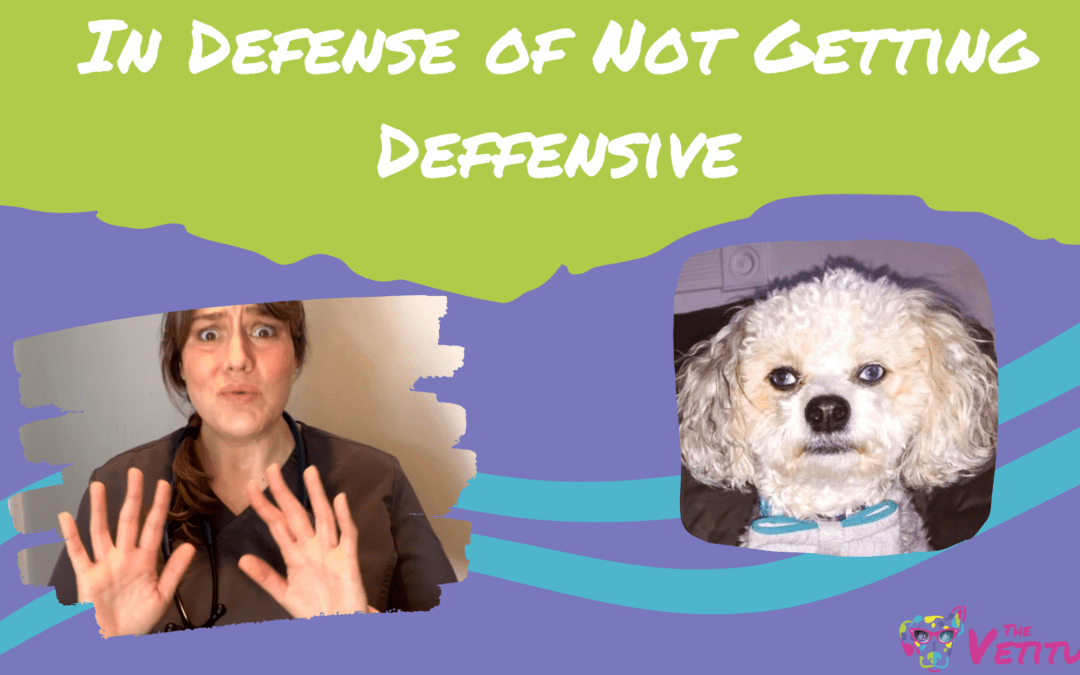I’m not sure if I popped my ostrich head out of the sand just in time for a particularly provocative bout of online drama, of I’ve just been gone so long I’d forgotten what it was like to be a veterinary professional on the internet. But either way, I’ve noticed the community in a bit of an uproar over the past few weeks—understandably so. Between human cardiologists calling us scammers, the New York Times farming for clients upset about their veterinary bills, and The Atlantic looking into “Why Your Vet Bill is So High,” we’ve been hit left and right with online indignation about veterinary hospitals being, well…businesses.
People complaining about the cost of veterinary medicine is nothing new, of course. And yet, it doesn’t seem to hurt any less when it happens. We pour our hearts and souls into our jobs and love our patients—of course we want to scream from the mountain tops “we’re not in it for the money.”
Or argue with the trolls about why we deserve to be compensated fairly for the work that we do.
Or remind them that we’re not veterinary automatons who can work 24/7, we’re human beings who need time to eat and pee and do our laundry and be with our family and friends.
But here’s the thing…Getting defensive doesn’t work. Especially on the internet.
I’m probably being a bit hypocritical here. Eight years ago, I had my first big breakout article—“The Real Reason Your Wait at the Vet’s Office is So Long.” A passionate rebuttal to a Huff Post article, “The Real Reason Your Wait at the Doctor’s Office is So Long.”

And it worked for me. After almost two years of writing to an audience of about twelve people, my article got tens of thousands of hits. Mainly from other veterinarians and veterinary technicians who wanted to join in with a “hells yeah!”
But what this article didn’t do is reach its intended audience—clients upset about the wait at their vet’s office.
It didn’t change any hearts or minds.
Since then, I’ve seen dozens upon dozens of viral articles by fellow veterinary professionals pushing back against some new (or old and rehashed) viral take from upset clients. And these articles have garnered tons of support from our colleagues. And even support from clients who are already on our side and respect and appreciate us.
But in all these years, with all of these eloquently written, passionate, and factual articles about the realities of our profession, I cannot recall a single instance of seeing a comment from someone saying “You know what? You make an excellent point. I was upset at my vet about this, but now I see it in a whole new light.”
Depressing, eh?
But here’s the thing. I’m not saying you can’t change minds. It’s just, writing defensive retorts on the internet probably isn’t going to be what does it. Go ahead and write them if you’re looking to commiserate with your peers or build an audience of fellow vet med people. But if you’re looking to actually change minds, we need to educate without getting defensive. We need to let the public know that we hear their concerns and we’re on their side.
I know what you’re probably thinking—we can’t let people bully us and call us scam artists and tell us we don’t care about their pets! How dare you suggest we accept this behavior?!
So let me clarify—I’m not suggesting that at all. In fact, the opposite.
Some people are never going to understand. They’re never going to come around. And these people are absolutely the kinds of people that you should not even be entertaining. When you see them online, feel free to vent to your colleagues, and then scroll on by. When you see them in the clinic, set them free. You don’t owe them your time and energy when they’re never going to appreciate it.
But the people who are just reacting to admittedly crappy circumstances and who legitimately don’t understand—their emotions are valid. And it doesn’t make you a traitor to the profession to validate them.
It’s okay to say, “Yes, the cost of a cruciate repair is a lot of money. I understand how overwhelming it must be to be faced with this unexpected bill and not know how you’re going to come up with the money.”
If talking to clients about money, in particular, makes you want to yank your own teeth out one by one with the extraction forceps, then stay tuned for deets on my upcoming FREE webinar “Money Talks: How to Approach Finances with Clients.”
You can get the info first by signing up for my mailing list.

